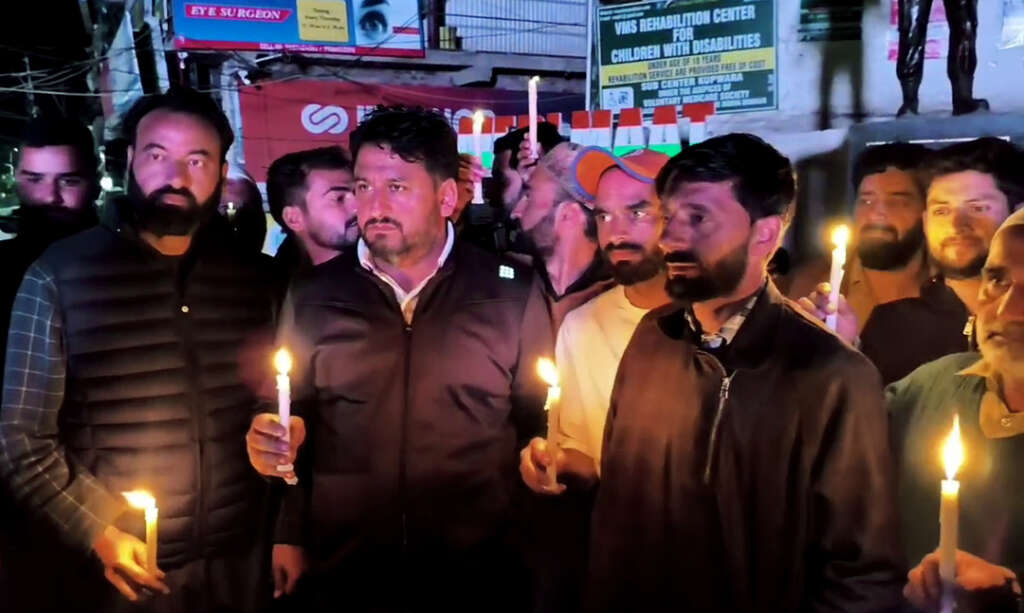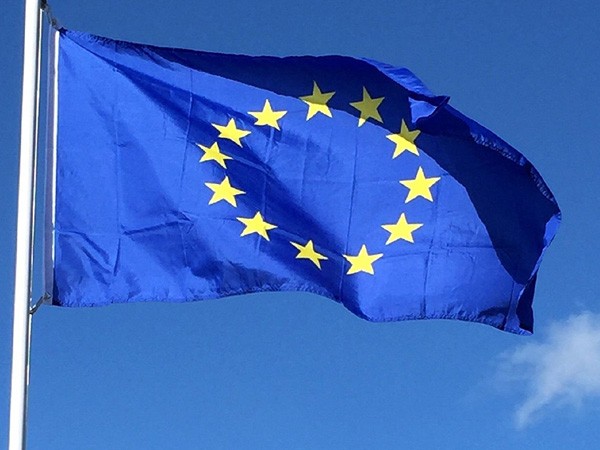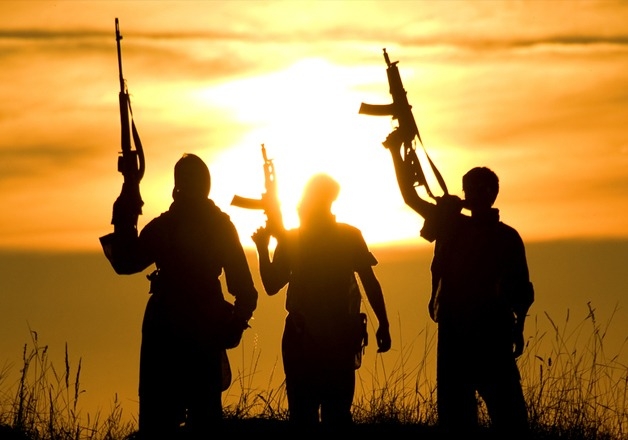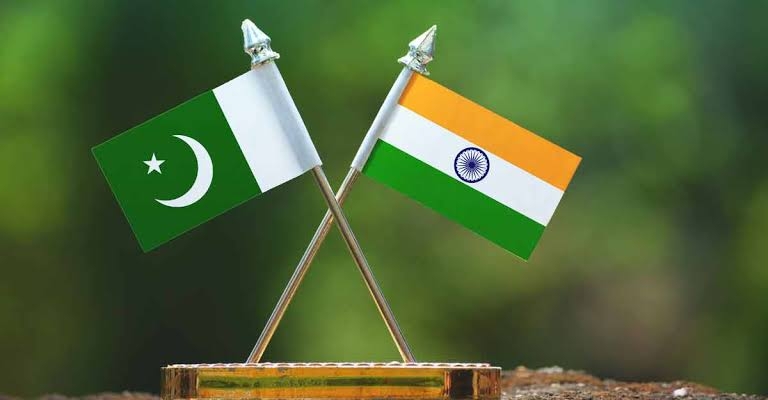By treating the victim of a terror attack and the alleged sponsor of that attack as equal parties in a dispute, the EU sends a troubling message: that geopolitical balance matters more than justice…writes Jagannath Panda
The recent terrorist attack in Pahalgam was not just another act of violence – it was a chilling reminder of the brutal threats that still plague the Indian subcontinent. Yet, while many in the international community rushed to condemn the attack, the response from the European Union (EU) was, at best, lukewarm and strategically cautious.
India responded with justified outrage via Operation Sindoor, taking firm and decisive action against terrorism. The response was not merely reactive. New Delhi has, over the years, built a robust counterterrorism doctrine that aligns both with domestic imperatives and international norms. Through diplomatic engagements, intelligence cooperation, and military precision, as seen in post-Uri and Balakot responses, India has consistently demonstrated strategic maturity in the face of provocation.
However, even as support poured in from various individual European nations, the EU’s reaction as a bloc, though outwardly condemnatory, seemed carefully calibrated to avoid uncomfortable truths. By refusing to call out Pakistan – a nation with a well-documented history of harboring militant networks – and by urging “de-escalation” instead, the EU defaulted to its usual posture of studied neutrality.
This episode prompts a necessary reflection: Why does the EU often refrain from taking an unequivocal stance when terrorism strikes South Asia? While European leaders rightly expect solidarity in response to attacks on their own soil, their reluctance to address security threats in India with similar clarity reveals an enduring inconsistency in approach.

Reading Through the EU’s Official Reaction
In the wake of the attack in Pahalgam, the European Union issued a formal condemnation. EU leaders rightly stated that terrorism in any form is unjustifiable and that those responsible must be held accountable. European Commission President Ursula von der Leyen went so far as to call the attack “vile,” while praising the unbreakable spirit of the Indian people. These are strong words, and they were needed.
But almost immediately after this show of solidarity, the EU reverted to familiar diplomatic hedging. In the same breath, Brussels called for both India and Pakistan to exercise restraint and de-escalate tensions, as if both parties were equally complicit. The EU urged dialogue over military response, and reminded both sides to follow international law and avoid civilian harm.
Such evenhandedness may sound reasonable, but in practice, it undermines the EU’s moral authority. By treating the victim of a terror attack and the alleged sponsor of that attack as equal parties in a dispute, the EU sends a troubling message: that geopolitical balance matters more than justice. Its refusal to attribute cross-border terrorism to Pakistan shows its unwillingness to take the matter seriously.
The Resistance Front, a proxy of the Pakistan-based Lashkar-e-Taiba, had claimed responsibility for Pahalgam initially and later denied it. However, India has said it had strong proof that the attack was a state-sponsored terrorist attack. Investigation by Indian agencies confirmed communication links between the terrorists who carried out the attack and their handlers based in Pakistan. India, therefore, expected much stronger reactions than filler statements from international bodies like the EU, given its claim to have zero tolerance for terrorism.

Diverging Voices Within the EU Bloc
There was a striking contrast between the reactions of some of the key European states and those of the EU. Member states like France and the Netherlands, and also the United Kingdom (which is outside of the EU), came out openly in support of India in its fight against state-sponsored terrorism.
French President Emmanuel Macron unequivocally condemned the Pahalgam attack and reaffirmed France’s support for India in its fight against terrorism. His statement underscored the growing strategic convergence between Paris and New Delhi, shaped by expanding trade ties and deepening defence cooperation. Notably, India’s use of French-made Rafale jets during its retaliatory strikes in Operation Sindoor reflected the operational depth of this bilateral partnership.
Meanwhile, the United Kingdom, a former EU member, also expressed strong solidarity with India. Foreign Secretary David Lammy stated that India had every reason to be outraged by the heinous and atrocious nature of the attack. Former U.K. Prime Minister Rishi Sunak, of Indian origin, emphasized that no democratic nation should be expected to tolerate cross-border terrorism.
Similarly, Dutch Prime Minister Dick Schoof extended his condolences over the Pahalgam attack, denouncing it as a “cowardly” act and reaffirming the Netherlands’ unequivocal stance against terrorism in all its forms and manifestations.
What stood out most in the aftermath of the Pahalgam attack was the conspicuous restraint in the EU’s response. The contrast is striking: in the case of Russia’s invasion of Ukraine, the EU acted decisively, issuing strong condemnations, enforcing sweeping sanctions, and even expecting partners like India to recalibrate their ties with Moscow. Yet when it comes to terrorism linked to the India-Pakistan conflict, the EU retreats into a posture of strategic ambiguity – cautious, non-aligned, and conspicuously quiet.
Indian External Affairs Minister S. Jaishankar expressed clear disappointment with the EU’s restrained response, emphasizing that India was seeking partners and not “preachers.” Critiquing the EU’s call for restraint, he noted that India values consistency in principles and is not looking for “preachers who don’t practice at home what they preach abroad.” His remarks reflected New Delhi’s expectation of a more robust and unequivocal stance from the EU, especially in light of the growing trade ties, strategic dialogue, and deepening engagement between the two sides.
This inconsistency risks diluting the EU’s credibility as a global actor committed to counterterrorism. If Brussels aspires to be more than just a regional bloc and genuinely seeks to “make Europe a Security Provider” as per its Strategic Compass doctrine, it must show the moral clarity and political resolve to take principled stands beyond its immediate neighborhood.

EU’s Silence on Pakistan-Sponsored Terrorism
Interestingly, the EU has been vocal about nipping global terrorism in the bud. However, their reluctance when it comes to Pakistan has not gone unnoticed and has raised several eyebrows.
The Pahalgam attack is not the first incident wherein the EU chose to gloss over state-sponsored terrorism in Pakistan. When the EU launched a counterterrorism strategy back in 2005, Brussels listed four distinct objectives: prevent, protect, pursue, and respond. However, despite pressure from the United States, the EU has not taken any concrete action against Islamabad, even though Pakistan has incessantly been accused of sponsoring terrorism and hosting terror organizations. Pakistan was also placed on the Financial Action Task Force’s “Terrorism Financing Watch List” from 2012 to 2015; even today, the Lashkar-e-Taiba, one of the key terror organizations based in Pakistan, continues to function and fund terror activities with impunity.
India has long argued that Pakistan’s military establishment plays a central role in enabling cross-border terrorism, particularly in Kashmir, Afghanistan, and across South Asia. New Delhi maintains that Pakistan’s army dominates the political landscape, allowing terror networks to operate without restraint. Jaishankar, speaking in Berlin a few days back, was again direct in his criticism of Western powers, especially European nations, for aligning themselves with Pakistan’s military rulers over the decades.
New Delhi, on its part, needs to do more to convince the EU and its members of the nature of the Pakistani state and its provision of safe havens for terrorists, and to convey India’s strong message of zero tolerance for terrorism in all its forms and manifestations. India needs to impress on the need for coordinated action against terror and terror handlers. The EU’s unwillingness to condemn Pakistan on the issue also explains the poor outreach that India has in the broader European community, given its inability to convince and share a platform on sensitive matters.
The decision to send all-party delegations abroad is a strong first step. The delegation to Europe, led by Ravi Shankar Prasad, is a golden opportunity. In visits to France, Germany, the EU, Italy, and Denmark, and the U.K., the delegation must showcase and engage in a convincing and long-term political consensus: that the EU and India stand together to combat terrorism.
This delegation is not just symbolic. It signals New Delhi’s intent to deepen structured political conversations with key European stakeholders on terrorism, radicalization, and hybrid threats. India has also sought to institutionalize security dialogues through platforms like the India-EU Strategic Partnership Roadmap 2025 and the Counterterrorism Dialogue. Such platforms can be leveraged to synchronize global counterterrorism responses, provided both sides commit with equal resolve.

It’s Time for Europe to Stand with India Against Terror
As India continues to assert itself as a regional power with growing military and strategic capability, the European Union should take note of India’s rising global credentials. Aligning more decisively with India is not just a diplomatic gesture; it’s a strategic imperative. A stronger EU-India partnership would send a clear message to terror networks and their backers: the world is united against this threat.
Europe is no stranger to the horrors of terrorism. Countries like France, Italy, and Greece have faced repeated attacks, testing the resilience of their societies and governments. And each time, India has stood in solidarity – not just with words, but with unwavering diplomatic and moral support. When France was devastated by the 2015 Paris attacks, India was among the first to express outrage and extend a hand of support. New Delhi has never equivocated on the question of terrorism, irrespective of geography or religion. Whether condemning the Paris attacks, the Brussels metro bombing, or the Vienna shootings, New Delhi’s stand has been unambiguous. This consistency is not tactical – it is rooted in a principled belief that terrorism anywhere is a threat to global peace.
Today, as the European Union navigates rising instability – from the ongoing Israel-Gaza conflict to the growing presence of Islamist extremist networks within its borders – it finds itself under heightened threat. Yet when India suffered its own tragedy, the EU’s response has been tepid at best.
Perceived double standards not only raise moral concerns; they also reflect strategic myopia. The global fight against terrorism requires consistent and reciprocal solidarity. If the EU seeks international support in its moments of crisis, it must demonstrate a similar resolve when terror strikes its strategic partners. A measured or equivocal response to attacks in India risks undermining both credibility and long-term influence. On a larger scale, Europe should recognize that the battle against global terrorism cannot be fought in silos. Collective action is the only path forward. That begins with confronting the financial arteries of terrorism. Scrutinizing and curbing the flow of funds into Pakistan, long accused of sheltering extremist elements, would be a crucial first step in dismantling the infrastructure that enables violence to thrive.
The EU needs to rework its strategy to counter global terrorism, and its association with India could be mutually beneficial for both sides significantly. Via Operation Sindoor, India has shown the world how clinically proficient it can be as far as military retaliation to terrorism is concerned. New Delhi has also stated that any further acts of terrorism will be considered an act of war and will be dealt with in strict measures.
As the European Union seeks to redefine its role in an increasingly multipolar world, it finds itself at a strategic crossroads. The Indo-Pacific has emerged not only as a thriving trade corridor but as the epicenter of future global power dynamics. From maritime security to critical trade negotiations, the region is where economic and strategic priorities converge. And in this space, India is a linchpin – economically vibrant, diplomatically agile, and militarily capable.
India, for its part, is not waiting in the wings. With a confident foreign policy rooted in multialignment and a leadership unwilling to play the “wait and watch” game with Pakistan or the “nod and agree” routine with Europe, New Delhi has made it clear: partnership must be principled. If the EU is serious about a future anchored in influence, stability, and shared values, it must match India’s clarity with its own.
Besides, if Europe wishes to shape the rules of engagement in a multipolar world, India is not just a stakeholder – it is a strategic partner of the highest importance. From counterterrorism to emerging technologies, New Delhi provides both normative alignment and operational strength. However, such a partnership cannot be one-sided. Europe must move from moral hedging to moral clarity. The time for measured silence has passed. The future demands coherence, conviction, and collective action.












